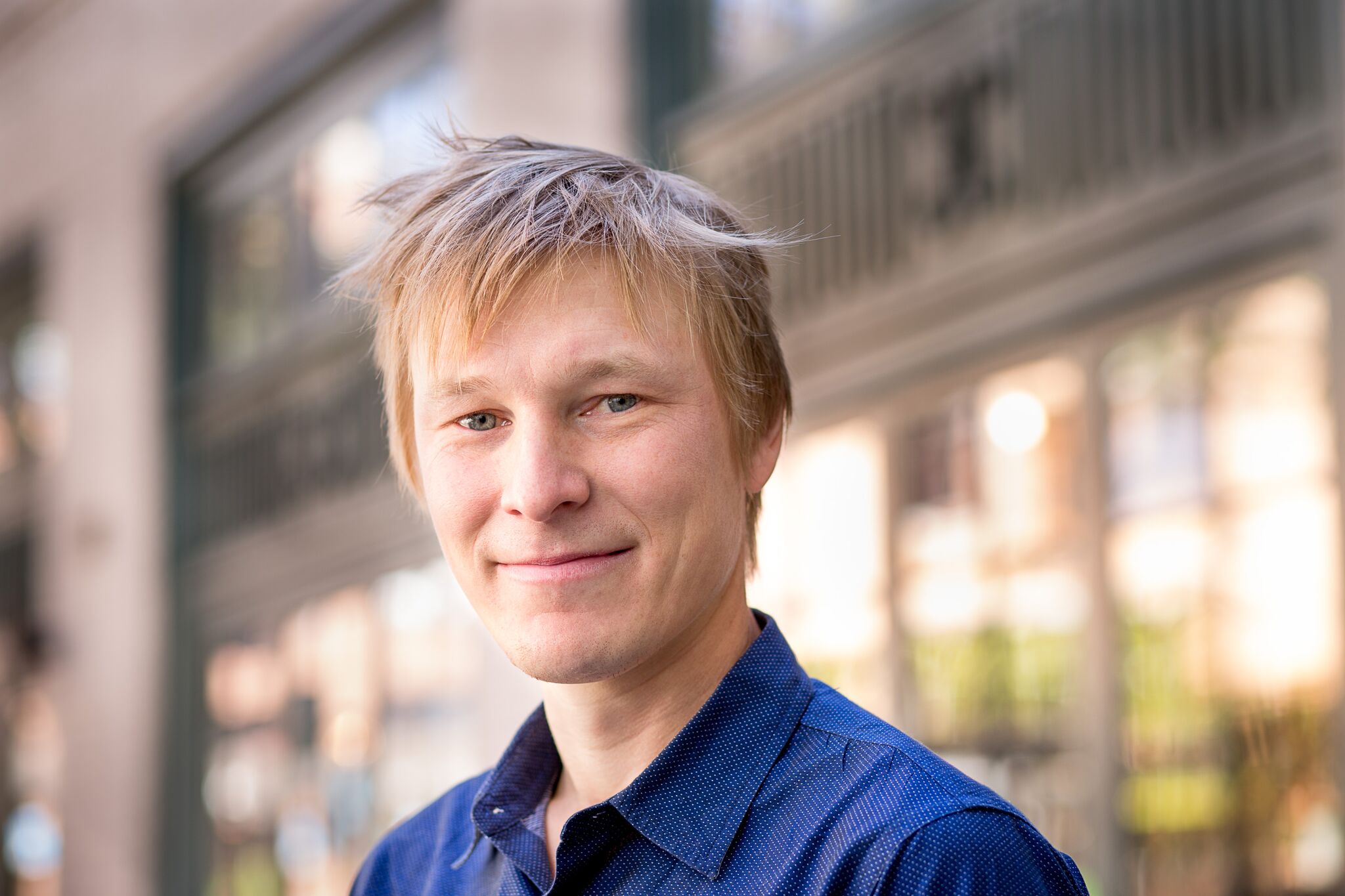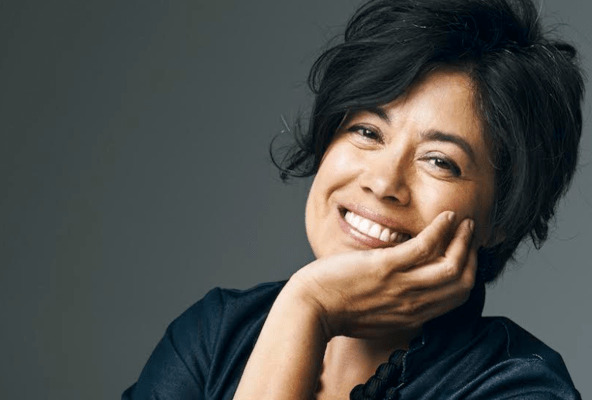Caterina Fake and Jyri Engeström have much in common beyond the home and family they share. Each has started — and sold — two companies. Fake famously co-founded the photo-sharing site Flickr, which sold to Yahoo, before co-founding Hunch, which sold to eBay. Engeström co-founded Jaiku, a mobile social network that sold to Google, before co-founding Ditto, a mobile local recommendations app that was acquired by Groupon.
Each has angel invested over the years. Fake wrote early checks to Kickstarter and Etsy, among tens of others; Engeström’s various bets include a startup called Applifier that sold to Unity Technologies; Moves, an activity tracking app acquired by Facebook; and the popular clothing label Betabrand.
More recently, both Fake and Engeström were also beginning to see more opportunities that seize on what Fake calls the “monumental changes” coming our collective way, including, in part, because of blockchain technologies.
They realized what they needed was a fund.
Enter Yes VC, a new, San Francisco-based pre-seed and seed-stage firm that’s targeting $50 million in capital commitments and already counts Supercell founder Ilkka Paananen, former Etsy CEO Chad Dickerson and the family office of Nokia Chairman Risto Siilasmaa as limited partners.
To learn more about the fund — which the pair expect to close next month and that already features some interesting startups — we talked with Fake yesterday in a conversation that’s lightly edited here for length and clarity.
TC: A decade ago, a recruiter told me he couldn’t talk you into becoming a VC.
CF: It’s true. A lot of the reason I wanted to become an entrepreneur and avoid working for others is that you get to create the world you want to live in, and the company you want to work for, and I’ve loved that. It’s a part of entrepreneurship that women should really embrace.
I’ve also just been really busy. I joined the board of Etsy when it was just three founders and I helped recruit the COO and CTO, Chad Dickerson, who later became the CEO. Etsy was a big part of what I’ve been doing for the past 10 years.
But there’s another [overriding factor] in the timing, which is this monumental change going on, and I feel it. My background has always been in online community — later renamed “social media.” I was about open culture. I was on the board of Creative Commons. Web 2.0 was largely about open APIs and the liberating of data across the internet. But gradually, everything got locked up [behind walled gardens, including that of Facebook].
TC: And you weren’t interested in the internet as a social force.
CF: Because of the reasons we’ve finally seen. Trust has dissolved. Fake news is ubiquitous. Societal trends have broken these down. Steven Johnson had it exactly right in his [New York Times piece this past weekend.]
I joined two boards in the past few years, the Sundance Institute, which is all about independent film, and McSweeney’s, which is all about independent publishing. I went back to traditional media [because I love it] and now that I see the imminent decline of these hegemonic systems, I’m excited to be back in the fray.
TC: Are you going to be investing in media companies?
CF: There’s tremendous growth across a range of old and new industries, including massive changes in transportation and the blockchain. It feels like the dawn of web 3.0.
TC: You didn’t want to join someone else’s venture firm, but you have been a part of the seed-stage venture firm Founder Collective as a partner, correct?
CF: Yes. I was effectively one of the original founder-partners there. It’s been a phenomenal group to be involved with from the get-go. It’s such a smart group of people. I would have in a heartbeat joined those guys, but they couldn’t sustain their strategy [with another full-time partner]. They’d have to raise more money.
If your ambition is to become the next Kleiner or Sequoia, that’s one thing. But that’s not the ambition of [Founder Collective] and it’s not our ambition, either. We want to stay disciplined. We’re a two-person firm that’s on track to make 30 investments. I’m not sure we could handle more volume than that.
TC: You’ve co-founded this fund with your business, and life, partner, Jyri Engeström. He’s Finnish, which makes me wonder about your geographic focus. Will there be one?
CF: We’re based in SF but because Jyri is Finnish and has a strong European connection, he does get a lot of European deal flow, so we expect that will part of it.

TC: What size checks will your firm be writing?
CF: We’re going to be pre-seed and seed, which is where we started as investors and where we’ve stayed. Probably investments will range from $250,000 to $1 million, which is very similar to how Founder Collective operates.
TC: You mention you’ve already made some investments.
CF: Well, yes, we’ve made 30 to 40 investments already in “fund zero.” [Laughs.] We’ve both done a ton of investing in our careers. I’ve had two IPOs with Etsy in 2015 and Cloudera in 2016. There have also been a ton of trade sales in my portfolio. My first investment was Maya’s Mom [a social network for mothers] that was acquired by BabyCenter. We’ve invested in TypeKit, sold to Adobe; 1000memories, which sold to Ancestry.com; DailyBooth, sold to Airbnb; Wavii, sold to Google; Superfeedr, which sold to Medium.
Jyri also spent the past couple of years as an [entrepreneur in residence] at True Ventures, where one of his investments, the satellite company ICEYE, just announced a major new milestone.
TC: Have you made any investments on behalf of Yes VC?
CF: We do plan to roll three or four or our most recent investments into the fund, including Spell, founded by Serkan Piantino, who helped create Facebook’s AI research lab, and Orchid, a blockchain VPN.
TC: You’ve obviously seen a lot of winning teams. How do you identify them? What are you looking for when you’re backing someone with not much more than a bare-bones idea?
CF: It’s very much based on founder and on intuition and other intangibles. Jyri and I both came from humanities backgrounds. We’re not engineers. We’re not CS people. I studied English Literature.
When you’re this early-stage [as an investor] and all you have is a prototype [to consider], you have to have good intuition about the founders. We do look at other aspects: What is the potential of this product or service or marketplace. But as you know, many founders don’t end up doing what was on their pitch deck. They evolve. Things change. It’s the price you pay as an investor for being in early, but that’s also when your intuition [pays off].
